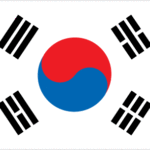
 Korea is an e-governance world beater. The country won the UN’s global e-governance award in both 2010 and for 2011.
Korea is an e-governance world beater. The country won the UN’s global e-governance award in both 2010 and for 2011.
Efficient e-governance saves time and money for people and businesses, contributes to greater transparency and boots participation. In Korea citizens can petition government, complain about government services, pay their taxes and apply for patents online. Businesses can get goods through customs quickly at a lower cost and find all information they need at one online space.
Among countries and within countries, the ‘digital divide’ reflects socio-economic divides. A lack of access to electronic information can mean missing out on jobs, education, markets and other opportunities, particularly for the poor and marginalized.
In the developing world ICT has tremendous potential to connect people in inaccessible places to markets, information, jobs, education, basic services and the political life of their country.
Recognizing this, developing countries are increasingly using ICT to reach their citizens, boost public participation in decision-making processes, make public institutions more efficient and improve public service delivery.
Many countries are making solid progress, but major challenges remain.
Governments in developing countries must be more strategic in mobilizing limited resources to effectively respond to citizens’ needs, keep them informed and build sustainable bridges between public institutions and citizens. Also, building a robust infrastructure for e-participation is expensive. The price may explain the lack of engagement in some developing countries.
The mass digital migration from personal computers to mobile phone applications gives new opportunities to boost e-governance in a way that does not break the bank.
Over 5 billion people own or have access to mobile phones worldwide, including the poor. In regions with no electricity, computers or internet access, mobile phones still work. New services like mobile banking, mobile government or mobile health are spreading fast. Korea has lessons to share.
Today UNDP supports 222 E-governance and Access to Information projects in 92 countries. 21% focus on the use of ICT to enhance citizens’ access to public information and promote participation and 18% to deliver services more effectively.
Developing countries want to know to know how Korea did it. They want to know which policies, plans and investments (both in infrastructure, technology and human capital) and reforms led Korea to become the e-governance example it is today. With this in mind, It is excellent to see that Korea is upping its efforts to share its lessons with developing countries.
With Korea’s world class e-governance examples and policy building experience, there is far more scope to work together in supporting democratic governance in the developing world.
Be a part of Elets Collaborative Initiatives. Join Us for Upcoming Events and explore business opportunities. Like us on Facebook , connect with us on LinkedIn and follow us on Twitter, Instagram.











